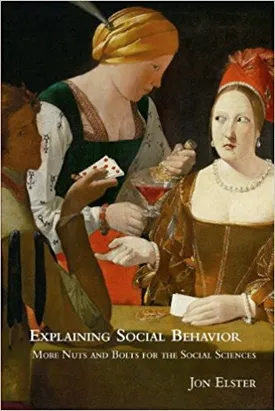Jon Elster
Jon Elster is one of the foremost authorities on the topics of political science and economics, and a professor at Columbia University in New York City. He is widely considered one of the most influential social theorists of the last several decades. Elster has written a number of books that have been highly acclaimed for their in-depth analysis and their creative strategies for tackling social and political complexity.
Elster was born in Oslo in 1940 and holds a Ph.D. from the University of Paris. He received his masters from the University of Oslo in 1971, and taught political philosophy at the University of Oslo from 1970 to 1981. During these years, he developed an influential research program into social choice theory and rational choice theory. In 1981, Elster joined the faculty at Columbia University, where he has remained ever since as professor of philosophy and social science.
Elster’s work spans across a variety of disciplines, including economics, ethics, and political science. His work has been greatly influential in developing our understanding of the motivation behind individual and collective decisions. Elster has developed sophisticated models that accurately explain complex social phenomena, such as voting behavior and lobbying, from the perspective of individual and collective rationality. Elster has challenged mainstream economic thought in his work, focusing on the irrational aspects of decision making such as emotion and cognition. Elster has also written extensively on the implications of his work for human society and the economy.
Elster has made significant contributions to the field of economics, which has been recognized by prominent awards, such as the Yrjo Jahnsson Prize in Economics. Elster has authored over two dozen books and over 200 articles on political philosophy, ethics, and economics. Among his most influential works are Rational Choice (1985), Explaining Social Behavior (1989), and Ulysses Unbound (1988).
Rational Choice is a highly influential book on the topic of decision making. Elster argues that rationality can be used to determine the best possible course of action in any situation. He incorporates a variety of approaches to decision making and presents a model to analyze the process. In doing so, Elster explores a range of issues, such as the value of trade-off between short-term and long-term decisions, the impact of incentives on decision making, and the effect of emotion on decisions.
Explaining Social Behavior is an examination of the influence of social context, such as family, culture, and education, on individual behavior. Elster provides a variety of analytical models, such as the notion of structural explanation, and shows how the social environment can shape our decisions. Elster analyzes how institutions such as the school and the market can cooperate to provide efficient outcomes.
Ulysses Unbound is Elster’s first major book on morality. He examines how our culture and our moral values shape our decisions. Elster argues that true morality must be based on what is right and just, rather than what society has determined to be right and just. Elster further develops the notion of structural explanation, which is a form of explanatory reasoning. Elster argues that the public sphere is structured to encourage certain behavior, and that these structures must be taken into account when attempting to explain and evaluate individual actions.
Jon Elster has had an enormous influence on the field of political philosophy and economics. His books are essential reading for anyone interested in the topics of decision making and social behavior. His work has been highly influential in developing our understanding of the motivations behind individual and collective decisions, and in challenging conventional wisdom on the field. Elster has provided a sophisticated model of decision making that accurately explains complex social phenomena, and which incorporates various aspects of our psychology and culture. Elster is an influential and innovative thinker whose work should be highly valued by scholars and policy makers alike.

